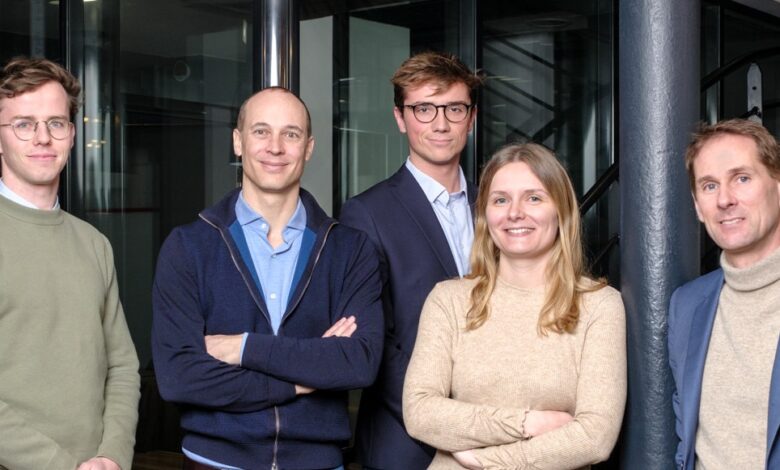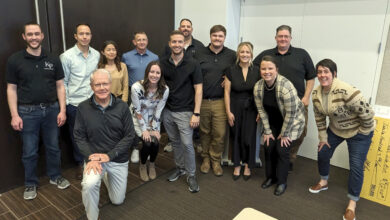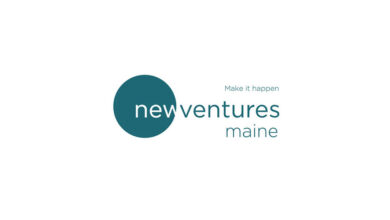‘We’ve acquired quite a lot of money’ – serial French entrepreneurs launch €130m climate fund

Wind, a French early-stage VC founded by serial entrepreneurs Thierry Vandewalle and Xavier Gury, has closed a first €90m of a targeted €130m fund dedicated to European deeptech startups in the climate sector.
The fund will back up to 30 seed and series A companies with tickets ranging from €500k to €5m; almost half of the money will be set aside for follow-on investments.
As an article 9 fund, Wind must only back companies which have sustainability as an “objective”, per the EU’s Sustainable Finance Disclosure Regulation (SFDR).
“Climate change is a huge issue that requires lots of innovation,” says Wind cofounder Xavier Gury. “In 20 years, there will be leaders in the climate change sector that will have found solutions and will be making huge amounts of money, and creating lots of value.”
“We want to bet on climate change’s future GAFAMs [Google, Amazon, Facebook, Apple, Microsoft].”
The firm has already backed three French companies: energy storage startup Eclipse, green IT company Sopht and battery diagnostics SaaS Entroview.
Climate deeptechs
Gury says that Wind will mostly back climate startups within a field known as adaptation tech — which refers to solutions that help us to deal with the effects of climate change, rather than trying to prevent it, which is called mitigation tech.
Adaptation tech is an emerging sector that is increasingly hitting VCs’ radars. A recent report from VC firm PT1 Ventures and consulting agency DWR eco suggests that 17x more funding than recent levels is needed worldwide for adaptation solutions.
“We’ve divided investments in three types of vital needs: breathing and eating; moving around and accessing energy; and staying safe and sheltering,” says Gury.
It’s a wide-ranging definition of adaptation: Gury says that Wind will back cybersecurity startups, for instance, which he anticipates will become increasingly critical to protect infrastructures and industries as precious resources like water become scarce.
He adds that the line between climate adaptation and mitigation solutions is large, and that the fund will not exclude mitigation projects.
The founder expects that almost half of Wind’s investments will be in France and the remaining half in the rest of Europe — although not in typical climate tech hubs.
Large ecosystems like Germany, says Gury, have many article 9 funds — such as Planet A and World Fund — meaning more competition for good deals.
“It’s not necessarily in these locations that we want to fight,” says Gury. “We’ll be looking at startups where there is less competition but great researchers and great patents, such as eastern Europe and southern Europe.”
Founded and backed by entrepreneurs
Vandewalle and Gury have been working together for 25 years. In 1999, they launched their first business, a digital communications startup called Wcube, which was acquired in 2007 by French advertising multinational Publicis.
They went on to create two more companies: a luxury perfume brand that was bought by l’Oréal in 2016 and a translation business that was acquired by German translation agency Deman in 2022.
“After this, we’d acquired two things: entrepreneurial experience — creating a company from scratch and building it up to 300 people — and quite a lot of money,” says Gury.
The pair have been investing their personal fortune out of a €23m evergreen fund since 2015, backing over 80 companies including food app Yuka and car rental platform Getaround. Gury says that the fund performed well, achieving 29 exits and a 4x return.
The founders decided to leverage their contacts to raise the new fund.
“When we said we were opening the fund, our network of entrepreneurs came to see us,” says Gury.
“We easily secured €30-35m from founders, which helped to convince larger institutionals.”
Wind’s LPs include French banks Bpifrance and BNP Paribas, and IT company Sopra Steria — as well as 120 entrepreneurs.
These include Getaround founder Paulin Dementhon, and speedy delivery app Frichti’s CEO Julia Bijaoui and cofounder Quentin Vacher. A number of French unicorn founders participated, according to Gury.
The founder adds that this means better access to good deals. “Entrepreneurs are the best business introducers,” says Gury. “If a founder tells another founder about a VC fund, that’s 90% of the job done.”



